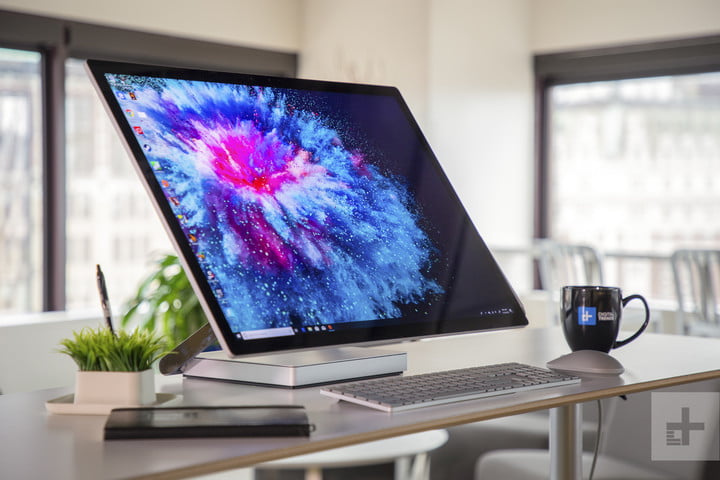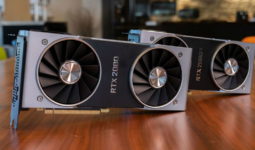Microsoft May Expand Its Surface PC Lineup in 2020 With Surface Monitor

Although Microsoft’s second-generation Surface Studio is just beginning to ship, the company may be planning a bigger, more radical refresh come 2020. According to Thurrott writer Brad Sams in his new book, Beneath A Surface, Microsoft will release a stand-alone Surface Studio monitor with modular functionality that could potentially deliver easy at-home upgrade options.
Sams’ mention of a modular design isn’t entirely out of left field for Microsoft, as Surface chief Panos Panay previously hinted of such a concept. What we didn’t know was how soon it will arrive or what components could be upgraded with this new design. Space-saving modular PCs aren’t entirely new, however, and Intel also showed off its vision of a modular PC with its Compute Card as an evolution of the company’s previous Compute Stick.
Given that Microsoft based its first- and second-generation Surface Studio on an all-in-one desktop design, there is very little in the way that users can upgrade. The slim design of the desktop means that the Surface Studio is built more like the rest of Microsoft’s mobile Surface PC lineup, so adding a modular design to the mix will be a welcome addition for those who may want to get better performance as their investment ages down the road.
In addition to a modular Surface, Sams also touched on another much anticipated Microsoft product: Project Andromeda. Initially, Project Andromeda was reported to be positioned as a pocketable PC with a foldable display, perhaps launching in the Surface family as the Surface Phone. However, in his book, Sams claimed that Microsoft’s approach has changed. Instead, according to The Verge, Andromeda “has morphed into a larger form factor.” Despite having called Andromeda a “disruptive” device, it’s widely believed that Microsoft has delayed the launch of Project Andromeda to find use cases for the device, likely to justify its innovative design and higher price.
Sams also gave some interesting insight into the PC industry, including Microsoft’s frustration with its long-time chip partner Intel over delays of the latter’s processors. This situation could also lead to Microsoft bringing AMD into the fold as an alternative, and Sams speculated that an AMD-powered Surface Laptop could debut in 2019 as a result.
Even though Microsoft did not launch its lower cost Surface Go tablet with an ARM-based processor, if Sams’ claims are accurate, the relationship between Microsoft and Intel may be rupturing. While Intel still dominates the PC processor market, Microsoft also launched its Windows on ARM initiative to create Always-Connected PCs. To date, Microsoft has not released its own Surface-branded Always-Connected PCs, but a few devices from HP, Lenovo, and Samsung have debuted with Qualcomm’s Snapdragon processors, integrated 4G LTE modems, and promises of long battery life.




